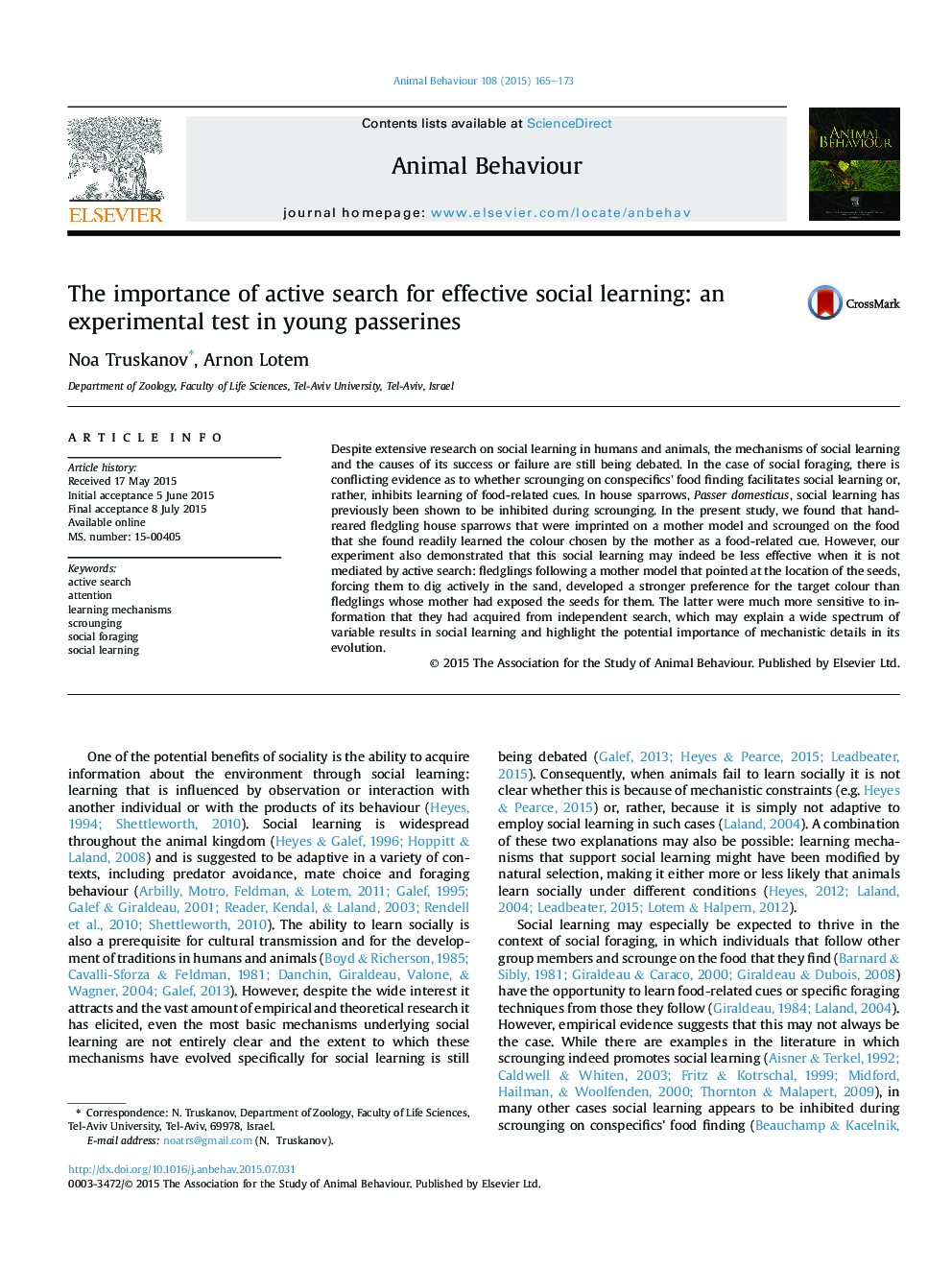| Article ID | Journal | Published Year | Pages | File Type |
|---|---|---|---|---|
| 8489677 | Animal Behaviour | 2015 | 9 Pages |
Abstract
Despite extensive research on social learning in humans and animals, the mechanisms of social learning and the causes of its success or failure are still being debated. In the case of social foraging, there is conflicting evidence as to whether scrounging on conspecifics' food finding facilitates social learning or, rather, inhibits learning of food-related cues. In house sparrows, Passer domesticus, social learning has previously been shown to be inhibited during scrounging. In the present study, we found that hand-reared fledgling house sparrows that were imprinted on a mother model and scrounged on the food that she found readily learned the colour chosen by the mother as a food-related cue. However, our experiment also demonstrated that this social learning may indeed be less effective when it is not mediated by active search: fledglings following a mother model that pointed at the location of the seeds, forcing them to dig actively in the sand, developed a stronger preference for the target colour than fledglings whose mother had exposed the seeds for them. The latter were much more sensitive to information that they had acquired from independent search, which may explain a wide spectrum of variable results in social learning and highlight the potential importance of mechanistic details in its evolution.
Related Topics
Life Sciences
Agricultural and Biological Sciences
Animal Science and Zoology
Authors
Noa Truskanov, Arnon Lotem,
